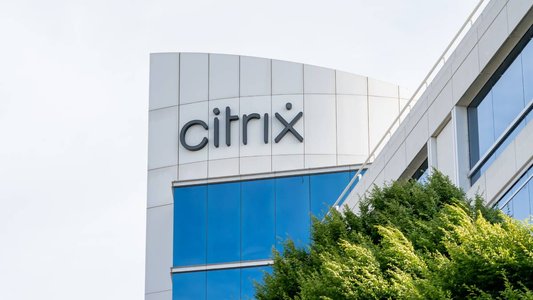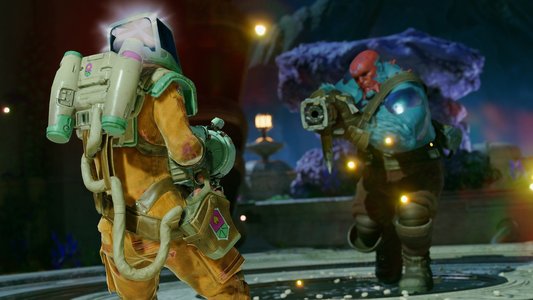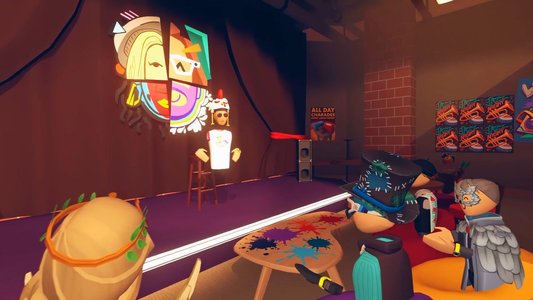"Real relationships... don't have anything to do with the kinds of things that we're spinning our wheels about right now as we look at [games] particularly in the social space." So says Scott Rigby of Immersyve, a company that focuses on consumer behavior research to improve engagement and retention, at the final GDC Online lecture today. The enormous schism people draw between sincere relationships and monetization isn't realistic, he says. "We've been making a false distinction that we have to choose," Rigby says. The psychology of what keeps players engaged in games "is all related to having a deeper, more meaningful relationship, rather than one that's kind of happening because of all the trappings around it." So what really creates a deeper and more sustained engagement with games? In terms of social networking behavior in general, "you don't have to try to trap [players]," he says. When a player is genuinely engaged, they will spontaneously tell their friends about it. Rigby sees three core areas where developers can give players a genuine sense of meaning that naturally motivates them to play and to share their experience, without the need for mechanics that "trick" players into pushing a product on Facebook's viral channels or demand they spend money when they don't actually want to. Mastery Leveling up is a key concept associated with mastery -- but "I question whether or not leveling up is really related to the satisfaction of mastery," says Rigby. So his team studied leveling up, and found that people's sense of confidence is related not just to growth, but to meaningful growth. So when tuning even something like leveling, adding something meaningful or satisfying to the player is necessary. "A lot of the mechanics that you guys are aware of... what we're trying to do is be like a four-year-old who's always saying 'why,'" he says. What supports people's feeling of mastery is "sustained competence feedback," some kind of information they can use to apply to and understand their own progress. "You can tell people they suck... but as long as you're giving them that information in a way that helps them grow to the next level, they can have that satisfaction." Autonomy The player must also have a sense of personal agency to remain engaged, Rigby said. City-building games have the opportunity to provide players a great sense of autonomy, for example. Having lots of selectable opportunities in one's perceptual field immediately visible also provides players that sense. One's FrontierVille game screen, for example, can have several available tasks on the screen at once, and because the player can see them all, they feel powerful when they are at liberty to select them in an order they choose. This makes a player feel like they matter, leading to an important facet in group play: when everyone has a role or a sense of where they belong in the group dynamic. Relatedness Rigby poses: "Are there mechanics that allow for... interdependence, so players can really feel like they matter in the context of play?" It's key for players to feel that they have a unique role to play in a group of other characters, whether or not those are represented by real friends. That principle drives people to tend each other's crops in social games or share gifts with one another, because they get a sense of contributing. It also can keep players engaged and motivated when they feel the characters in a game world rely on them, or when party members in an RPG interrelate. The principle can also work by giving a player a companion character that relies on them, such as Fable II's dog. "These are related to people staying and sticking around in your game," suggests Rigby. Relatively few games satisfy all three of these areas. In general, he says, group raids in MMOs are good at offering players a sense of mastery and belonging, but fail to give players a sense of autonomy satisfaction, as they're so tightly choreographed -- each person has a role, and limited movement outside of it. But World of Warcraft's flying mounts are so popular because they hit all three areas: Players experience a sense of mastery, since it's a reward for a high level achievement; they get autonomy, because they are now more free to navigate the world in a new way, and they have a new perspective on where they stand in the world relative to other characters. The Downside Of Rewards Simply giving players something they want doesn't work in the long term, Rigby warns. "Rewards are becoming a huge mechanic in online games and social games," he says. "A lot of it is really bothering me, to be honest, because our data suggests we might be going in the wrong direction. We need to give people things to get them to keep playing?" "You start to focus on what's that external thing they're going to get, rather than on the experience themselves." he says. Arbitrarily giving players things does not, in fact, increase engagement. Without meaning, rewards can actually diminish long-term satisfaction and engagement. For example, you cheapen a relationship by throwing money and things at a significant other. "People start to feel controlled," he says, and when they feel that way, they leave. "We're always worried about how we throw more stuff on top, and in some ways we end up creating our own problem." He points out that many people start new characters because they'd like to level up all over again -- players enjoy the meaning in the process, and rewards can be counterproductive without it. He says that extrinsic rewards do work, but only in the short term. Extrinsic rewards are also less likely to inspire a person to share the experience with their friends or invite them to join, since a gain received without meaning isn't something anyone really wants to talk about after a while. Those relationships are most important -- the social pressure that many Facebook games demand can work against them. Obligation to return a favor in a social game can at first drive engagement. But when players start to fear alienating their real friends because of their Facebook wall posts or because they reject a request for help on their virtual farm, they'll actually shy away from keeping up with the experience. Intrinsic motivation is key, he concludes, and any efforts to circumvent that in favor of a focus on behavioral metrics will result in a product that fails.
GDC Online: Player Retention Requires Real Motivation, Engagement
Oct. 8, 2010

Tags:
event-gdc
Subscribe to our newsletter
About JikGuard.com
JikGuard.com, a high-tech security service provider focusing on game protection and anti-cheat, is committed to helping game companies solve the problem of cheats and hacks, and providing deeply integrated encryption protection solutions for games.
Top

New Phishing Campaign Abuses ConnectWise ScreenConnect to Take Over Devices
Aug. 27, 2025

New Data Theft Campaign Targets Salesforce via Salesloft App
Aug. 27, 2025

ENISA to Coordinate €36m EU-Wide Incident Response Scheme
Aug. 27, 2025

Citrix Patches Three NetScaler Zero Days as One Sees Active Exploitation
Aug. 27, 2025

ShadowSilk Campaign Targets Central Asian Governments
Aug. 27, 2025
Recent

New Phishing Campaign Abuses ConnectWise ScreenConnect to Take Over Devices
Aug. 27, 2025

New Data Theft Campaign Targets Salesforce via Salesloft App
Aug. 27, 2025

ENISA to Coordinate €36m EU-Wide Incident Response Scheme
Aug. 27, 2025

Citrix Patches Three NetScaler Zero Days as One Sees Active Exploitation
Aug. 27, 2025

ShadowSilk Campaign Targets Central Asian Governments
Aug. 27, 2025

Nevada “Network Security Incident” Shuts Down State Offices and Services
Aug. 27, 2025

Researchers Discover First Reported AI-Powered Ransomware
Aug. 27, 2025

CISA Strengthens Software Procurement Security With New Tool
Aug. 27, 2025

PlayStation CEO says firm is implementing measures to minimise impact of cancellations
Aug. 27, 2025

Ubisoft CEO Yves Guillemot summoned to appear before French court
Aug. 27, 2025
Blog

JikGuard Game Protection Product FAQ
Dec. 16, 2025

How Games Counter Login Attacks
Dec. 11, 2025

Security Risk Analysis for Strategy Games
Dec. 9, 2025

Analysis of Mobile Game Anti-Hack Solutions
Dec. 4, 2025

JikGuard Offline Anti-Cheats Function
Dec. 2, 2025

How do games detect memory modifications
Nov. 27, 2025

Game Anti-Cheats SDK Feature Analysis
Nov. 25, 2025

How Games Combat Emulator Cheating
Nov. 20, 2025

Unity Game Packaging and Encryption Solution
Nov. 18, 2025

global-metadata.dat Encryption Scheme
Nov. 14, 2025
Random

New Phishing Campaign Abuses ConnectWise ScreenConnect to Take Over Devices
Aug. 27, 2025

PlayStation CEO says firm is implementing measures to minimise impact of cancellations
Aug. 27, 2025

Nevada “Network Security Incident” Shuts Down State Offices and Services
Aug. 27, 2025

Developer Rec Room lays off 'about half' its staff
Aug. 26, 2025

Tech Manufacturer Data I/O Hit by Ransomware
Aug. 26, 2025

CIISec: Most Security Professionals Want Stricter Regulations
Aug. 26, 2025

357,000 visitors attended Gamescom 2025
Aug. 26, 2025

ShadowSilk Campaign Targets Central Asian Governments
Aug. 27, 2025

Resident Evil Requiem wins big at Gamescom Awards 2025
Aug. 26, 2025

Phishing Campaign Uses UpCrypter to Deploy Remote Access Tools
Aug. 26, 2025
Most Views

How Games Detect GameGuardian
March 17, 2025

Explanation of Game Anti-Cheat Solutions
March 17, 2025

Cheat Engine Modifier Detection Solutions
March 18, 2025

Explanation of Unity Engine Encryption Solutions
March 17, 2025

How to Anti Hack in Client-Side Games
May 21, 2025

Cocos Engine Encryption Solution
April 8, 2025

How Games Anti-Debugging
April 15, 2025

Cloud Phone Detection Solution for Gaming
May 21, 2025

How Games Detect Frida
March 25, 2025

How Games Detect PlayCover
March 26, 2025


